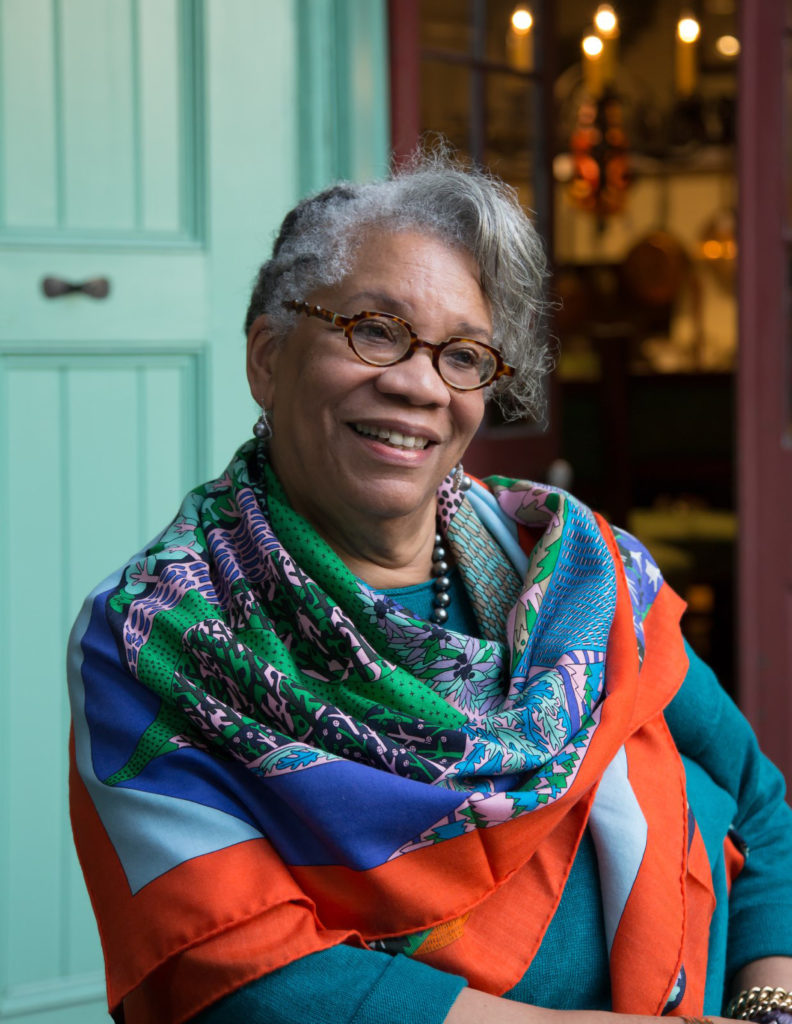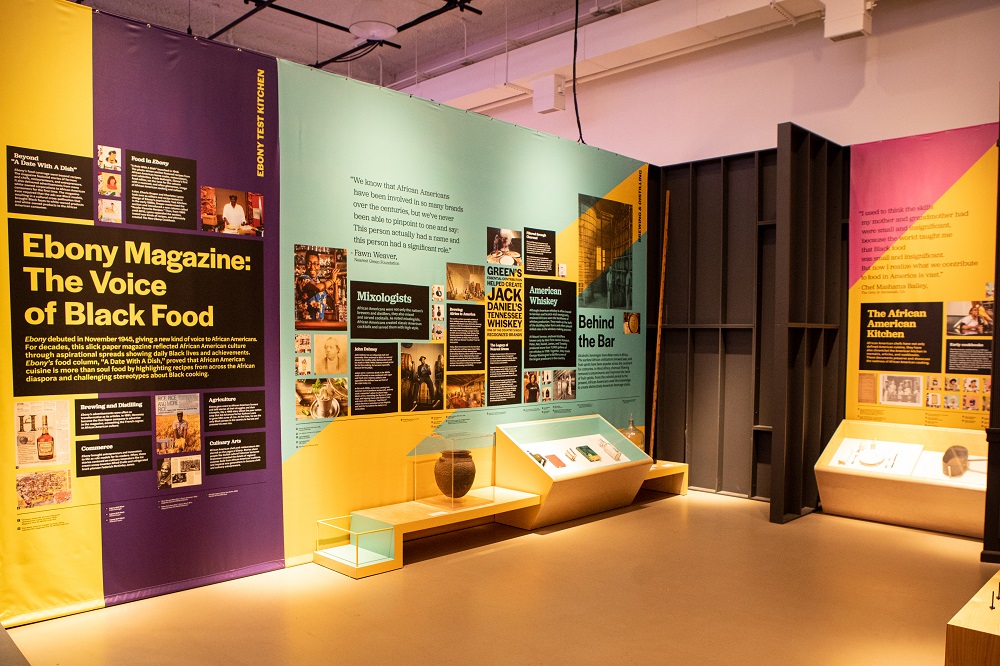To give a better understanding of the rich and expansive stories behind the meals created by African Americans, and to offer a look at the immense breadth of African American food traditions and innovations, the Museum of Food and Drink (MOFAD) in NYC recently unveiled African/American: Making the Nation’s Table.
The exhibit is displayed within the newly-constructed home of The Africa Center at Aliko Dangote Hall, in New York (1280 5th Avenue). Said to be a first-of-its-kind exhibition that celebrates the countless contributions of Black chefs, farmers, and food and drink producers who have laid the foundation for American food culture — a recognition that is long overdue.
African/American: Making the Nation’s Table is running until June 19, 2022.
“In every corner of the globe, African customs have permeated societies, often in unknown or unacknowledged ways,” said Uzodinma Iweala, CEO of The Africa Center in a press release.
African/American: Making the Nation’s Table comes after a two-year postponement due to the pandemic. The Museum of Food and Drink (MOFAD) is a nonprofit museum that is the world’s first large-scale food museum with exhibits you can eat.

African/American: Making the Nation’s Table is an immersive approach to the abundance of African American food traditions in the country, created and provided by Black Americans throughout 300 years of history. Dr. Jessica B. Harris — a culinary historian and author whose book High on the Hog: A Culinary Journey from Africa to America inspired the 2021 Netflix documentary series of the same name—curated the exhibition with the knowledge of over 30 visionaries within the Black American culinary landscape.
“I have spent more than four decades writing about African American food culture. Why? Because our history is on the plate. For this reason, we need to tell our story and tell it well. The exhibition African/American: Making the Nation’s Table is the first of its kind to reveal the depth and breadth of the contributions of African Americans to our nation’s food culture. Now is the time to celebrate, savor, and remember that African American food is American food,” Dr. Harris said in a press release.

The centerpiece of the exhibition, the Legacy Quilt— illustrated by Adrian Franks, sewn by the quilting collective Harlem Needle Arts using period-appropriate fabrics, and featuring blurbs on each block by writer Osayi Endolyn—depicts, through traditions stitched together and interconnected across the Diaspora, space, and time, a selection of hundreds among countless stories that deserve recognition.
According to MOFAD, the Legacy Quilt also includes an interactive, virtual experience whereby people can submit their own stories of African American culinary heroes to add— emphasizing that these culinary histories are not finite.
Visitors are then carried through four centuries of influence on agriculture, culinary arts, brewing and distilling, and commerce. The movement of people— whether enslaved Africans across the Atlantic or over six million Black Americans from the South to the North during the Great Migration is also central theme of the exhibition.

While the Legacy Quilt offers a breathtaking panorama, the Ebony Magazine Test Kitchen— saved from wreckage thanks to preservationists Landmarks Illinois and accessible to the public for the first time in history— offers immersion into a specific institution (and its vivid, Afro-Modernist aesthetic representation of its historic moment) that served as a culinary touchstone for more than two generations of African Americans.

Another central element of the exhibition is a dynamic digital interactive project that uses iconic dishes to unlock informative, animated maps. This feature replicates a dinner table, and by moving around silverware, cups, and even the food, users unlock stories about migration, cultural evolution, and the feeling of sharing a meal with friends and family. Summoning the complexities and movements, struggles and joys of these culinary histories through food, the exhibition also features to-go shoebox lunches (available for an additional fee)—recalling the meals African American train travelers packed in shoeboxes during the Great Migration, as they were often refused service.
These tastings are developed by renowned chefs such as Carla Hall, Adrienne Cheatham, and Kwame Onwuachi, all advisors on the exhibition.
“MOFAD produces exhibitions and other public programs that help people to better access their own history and the histories of the people around them as manifested through food and drink. We are committed to collaborating with fellow New York City cultural institutions to give exposure to stories that may have been underappreciated, untold, or erased in the sweep of history and the narrow narratives that dominate it—and to sharing these vital legacies in new and profound ways,” said MOFAD President Nazli Parvizi.
Tickets for MOFAD’s African/American are available here.





